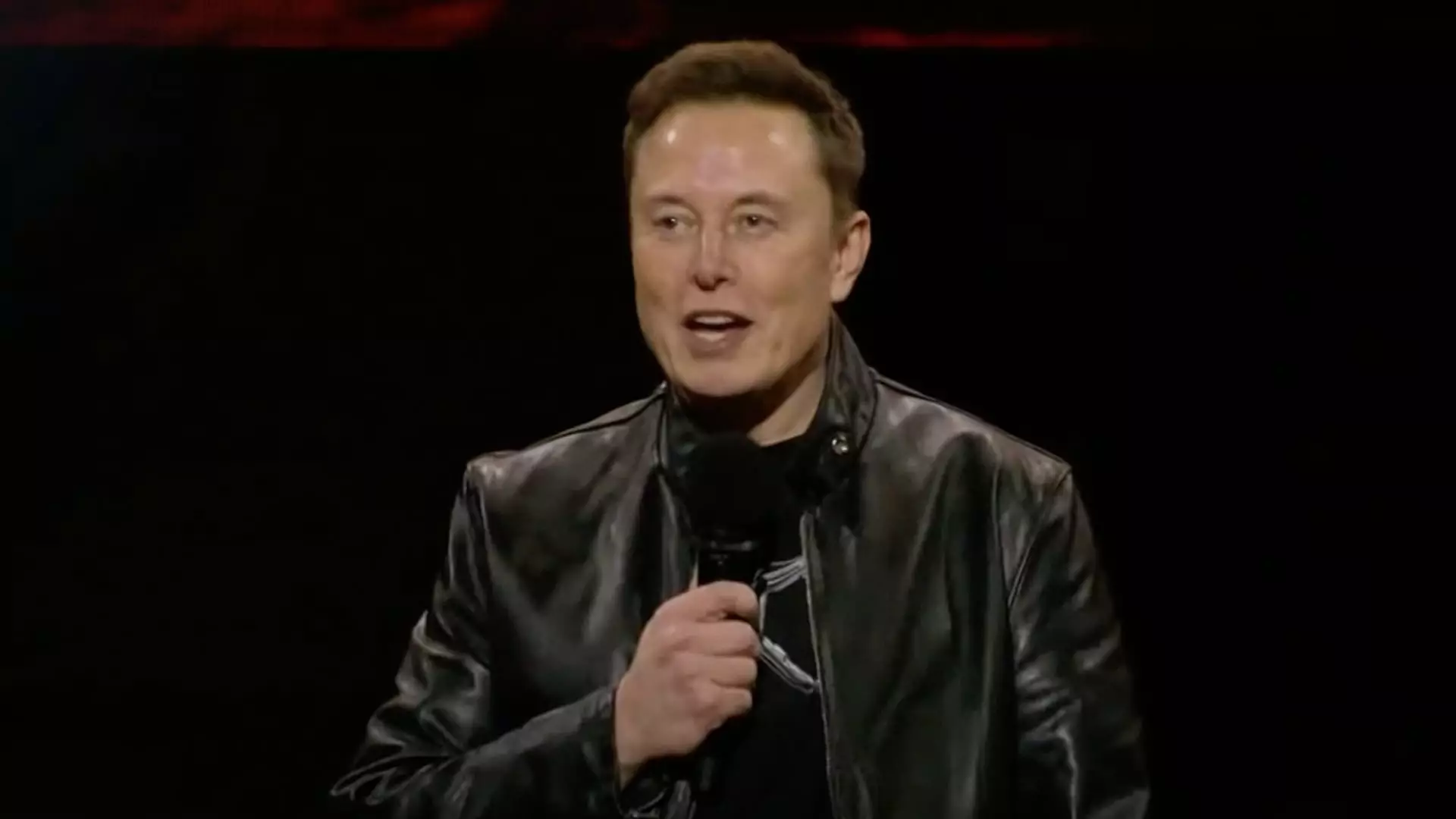The intersection of technology, entertainment, and law is frequently turbulent, as the recent lawsuit involving Elon Musk, Tesla, and Alcon Entertainment illustrates. At the core of this dispute is the alleged unauthorized use of an iconic image from the film “Blade Runner 2049” during the unveiling of Tesla’s robotaxi concept. This situation highlights the complexities of copyright infringement in the age of artificial intelligence and the legal and reputational risks facing high-profile public figures and their corporations.
The Allegations of Copyright Infringement
Alcon Entertainment, the producer of “Blade Runner 2049,” has taken legal action against Musk and Tesla over their supposed infringement of intellectual property rights. The allegations state that the defendants sought permission to use an image related to the film for the launch of their Cybercab concept, but Alcon firmly denied any such request. The lawsuit contends that despite this refusal, the defendants went ahead and utilized what purportedly was an AI-generated image of the movie still, thus engaging in what Alcon describes as “massive economic theft.”
The crux of the lawsuit revolves around the apparent appropriation of a visual that holds significant artistic value. Not only did Alcon object to the image’s use, but they also expressed concern about the implications of associating their franchise with Musk, especially given his often controversial public persona. In legal terms, the use of protected creative works without authorization constitutes copyright infringement, and the film studio argues that their intellectual property rights have been violated.
Musk’s reputation precedes him, marked by his outspoken political views and unpredictable behavior. As highlighted in the lawsuit, Alcon’s concerns are not just about the unauthorized use of an image; they underscore the potential reputational consequences of aligning with Musk’s brand. The legal filings indicate that the studio is apprehensive about how Musk’s public persona could alienate potential partners, particularly brands that may favor a more neutral or progressive stance as opposed to Musk’s known affiliations.
Admittedly, Musk’s political commentary and social media activities have drawn a great deal of scrutiny. He has been linked to controversial statements that raise questions about his ability to appropriately represent other brands. Such concerns could have substantial ramifications not only for Tesla but for any company that considers partnering with Musk’s enterprises.
The Impact on Alcon’s Business Interests
The financial repercussions of what Alcon claims to be unauthorized use of its intellectual property are significant. The studio is engaged in talks with other automotive brands regarding partnerships linked to the upcoming “Blade Runner 2099” television series, and association with someone as polarizing as Musk could potentially deter these opportunities. Alcon’s lawsuit is timely, reflecting a deeper apprehension regarding brand image and the salient issues surrounding public association in the current socio-political climate.
This lawsuit serves as a vital reminder that a brand’s identity can be affected—not only by its products and services but also by the controversies surrounding its affiliations. Alcon’s refusal to permit the use of their intellectual property encapsulates an overarching strategy to protect the integrity of their franchise and its future endeavors.
Ultimately, this legal conflict serves as a cautionary tale for tech innovators and entrepreneurs like Musk who are often at the forefront of exciting developments in their fields. The rush to integrate novel technologies—such as artificial intelligence—can lead to unintentional legal missteps that jeopardize not only the technological advancement but also the reputations built over years.
As companies increasingly leverage AI for marketing and product development, awareness of copyright laws and the importance of obtaining proper permissions is vital. This lawsuit highlights the potential pitfalls of innovation when it collides with existing intellectual property laws, especially within a system that increasingly blurs the lines of creativity and ownership.
Looking Ahead: The Future of AI and Copyrights
As this case unfolds, it highlights the essential discourse concerning artificial intelligence and copyright. As technology advances, the ability to generate new content through AI raises fresh questions about authorship and intellectual property rights. Will existing copyright frameworks be adequate to manage these complexities, or will they require reform to accommodate the innovations of the digital age?
In an era where brand alliances can make or break reputations, understanding the subtleties of legal agreements and the significance of protecting intellectual property is more crucial than ever for individuals and companies alike. The outcome of this case may set a crucial precedent for the future landscape of technology and entertainment, with implications that extend far beyond the parties involved.


Leave a Reply